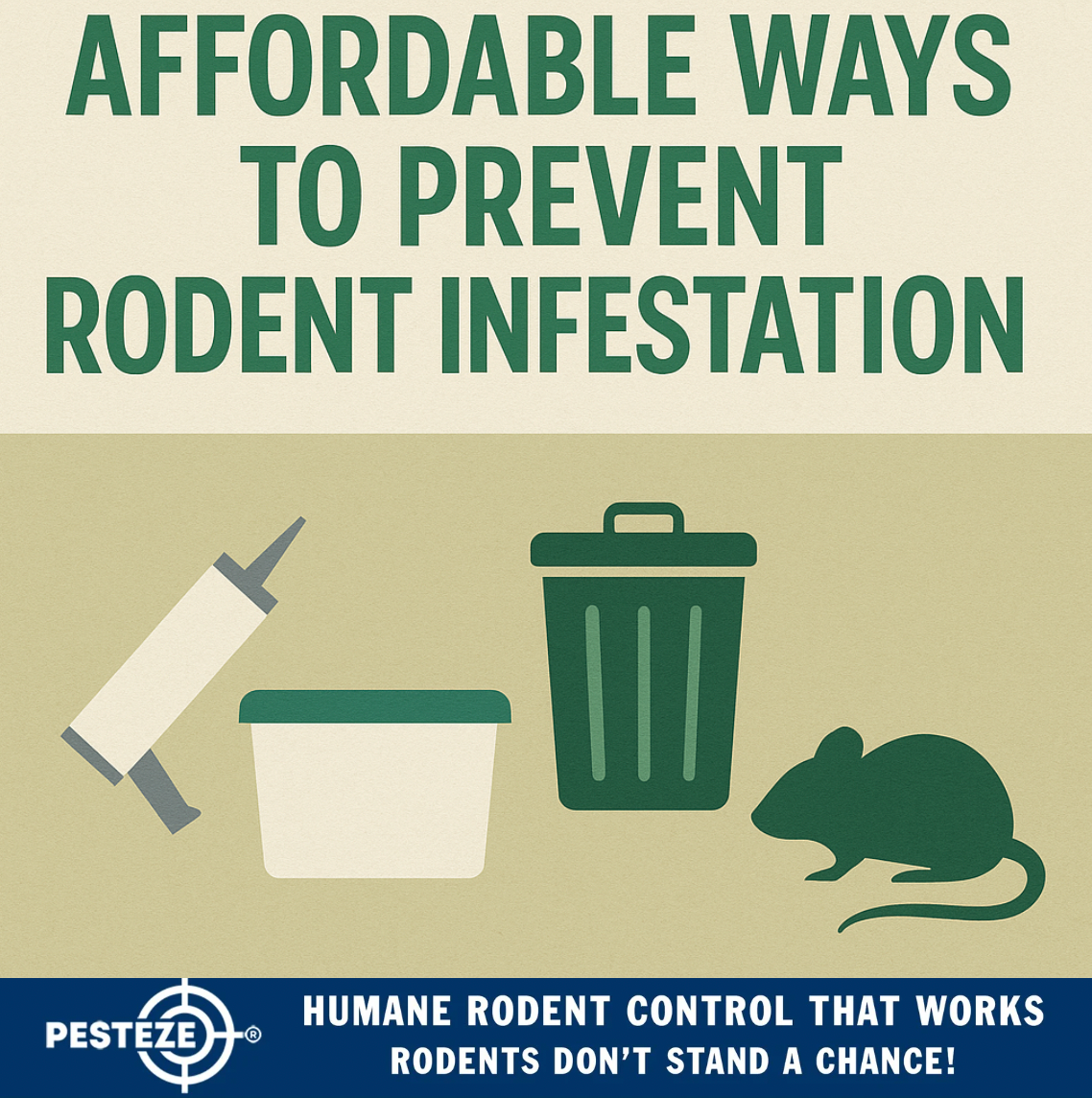AFFORDABLE WAYS TO PREVENT RODENT INFESTATION

AFFORDABLE WAYS TO PREVENT RODENT INFESTATION
SUMMARY
Preventing rodents doesn’t have to break the bank. This guide explores budget-friendly tips and tricks homeowners can use to block entry points, secure food, and maintain a rodent-free home year-round.
FEATURES
-
Seal Small Gaps: Use caulk, steel wool, or DIY mesh covers.
-
Low-Cost Food Security: Store food in plastic bins or glass jars.
-
Budget Trash Solutions: Use sealed garbage cans with tight lids.
-
Declutter Regularly: Keep storage areas tidy and organized.
-
DIY Repellents: Try peppermint oil, cloves, or vinegar sprays.
-
Routine Checks: Inspect seasonally to catch problems early.
DESCRIPTION
Rodent prevention doesn’t require expensive pest control services or high-tech devices. With some simple, affordable strategies, homeowners can significantly reduce the risk of infestation while saving money. The key is consistency—small, inexpensive actions add up to long-term protection.
The first and most important step is sealing small gaps. Rodents can enter through holes as tiny as a quarter inch, so inspecting your home is essential. Affordable materials like caulk, steel wool, or hardware cloth from a local hardware store can be used to plug cracks in foundations, walls, and around windows. These quick fixes cost little but go a long way in keeping rodents out.
Next, focus on food security. You don’t need fancy containers—simple plastic bins, mason jars, or even repurposed glass jars with lids work well for storing dry goods. By keeping food sealed, you reduce the primary incentive for rodents to invade.
Trash is another common attractant. Budget-friendly garbage cans with tight-fitting lids prevent rodents from scavenging. Emptying trash regularly also eliminates food sources before pests have the chance to find them.
Decluttering is completely free but highly effective. Attics, garages, and basements filled with piles of boxes or paper create ideal nesting spots. By organizing storage areas and discarding unused items, you make your home less welcoming to rodents.
DIY repellents are another low-cost strategy. Scents like peppermint oil, cloves, or vinegar are unpleasant to rodents and can be applied to entry points or problem areas. While not as strong as professional repellents, they add an extra layer of deterrence at little cost.
Finally, routine checks are essential. Walk around your home each season and look for new cracks, chew marks, or droppings. Early detection ensures that small problems don’t turn into costly infestations later.
By combining sealing, food security, trash management, decluttering, DIY repellents, and regular checks, you can prevent rodent infestations without spending much. Affordable prevention not only saves money but also protects your home and health in the long run
- Saharsh Bansal


Comments 0